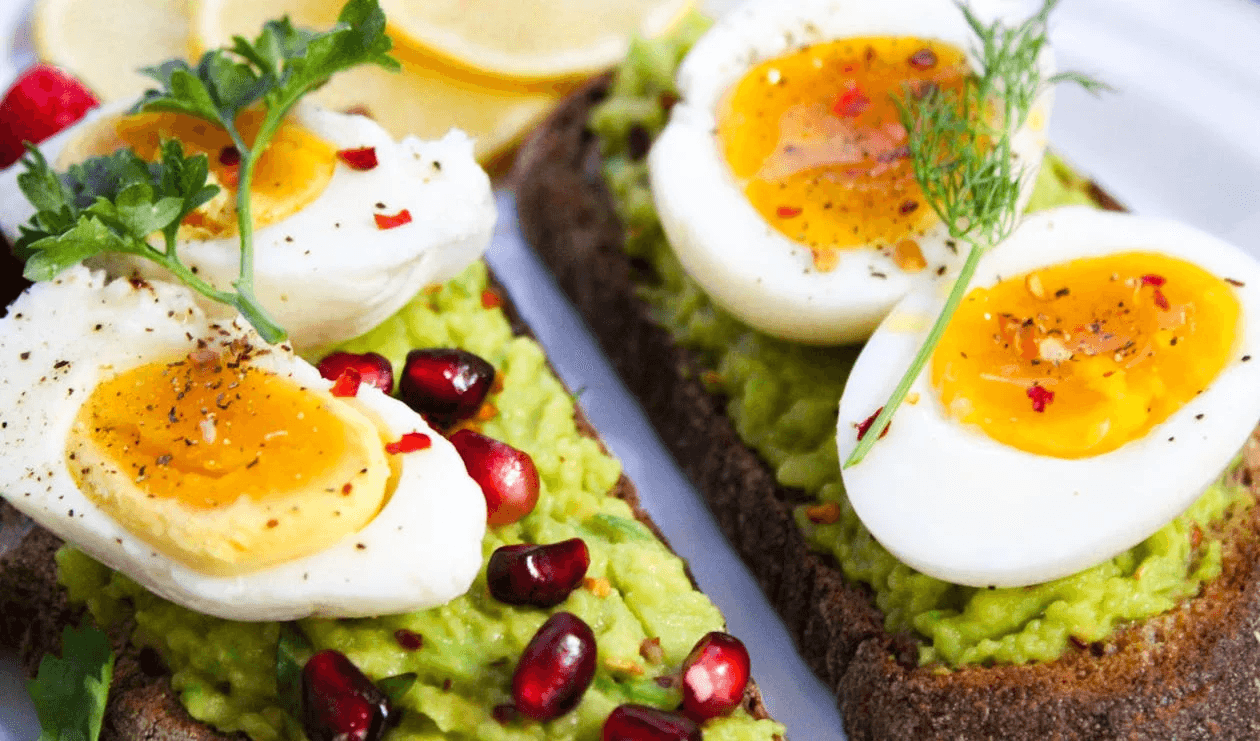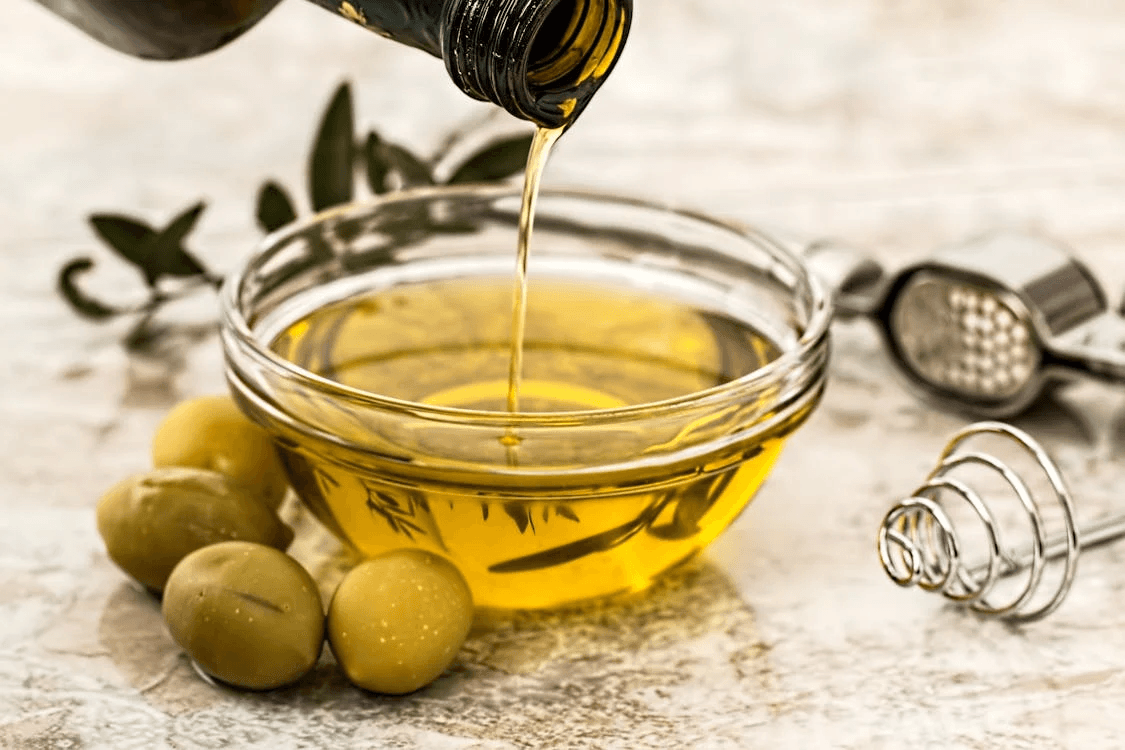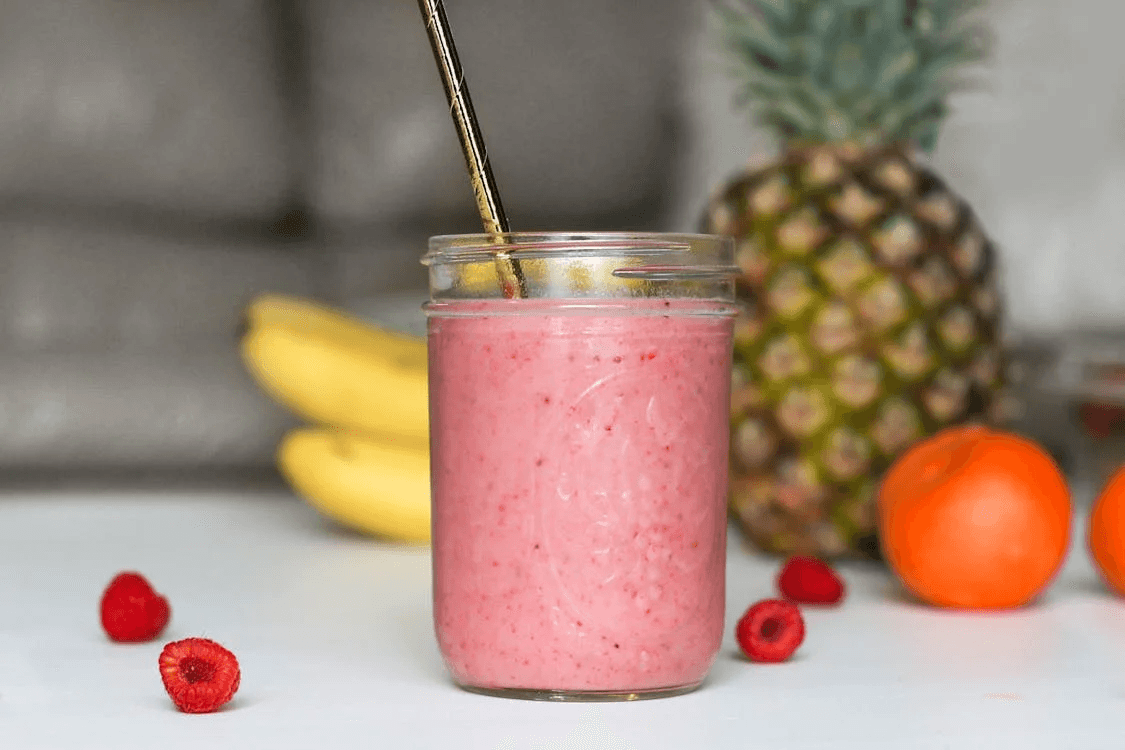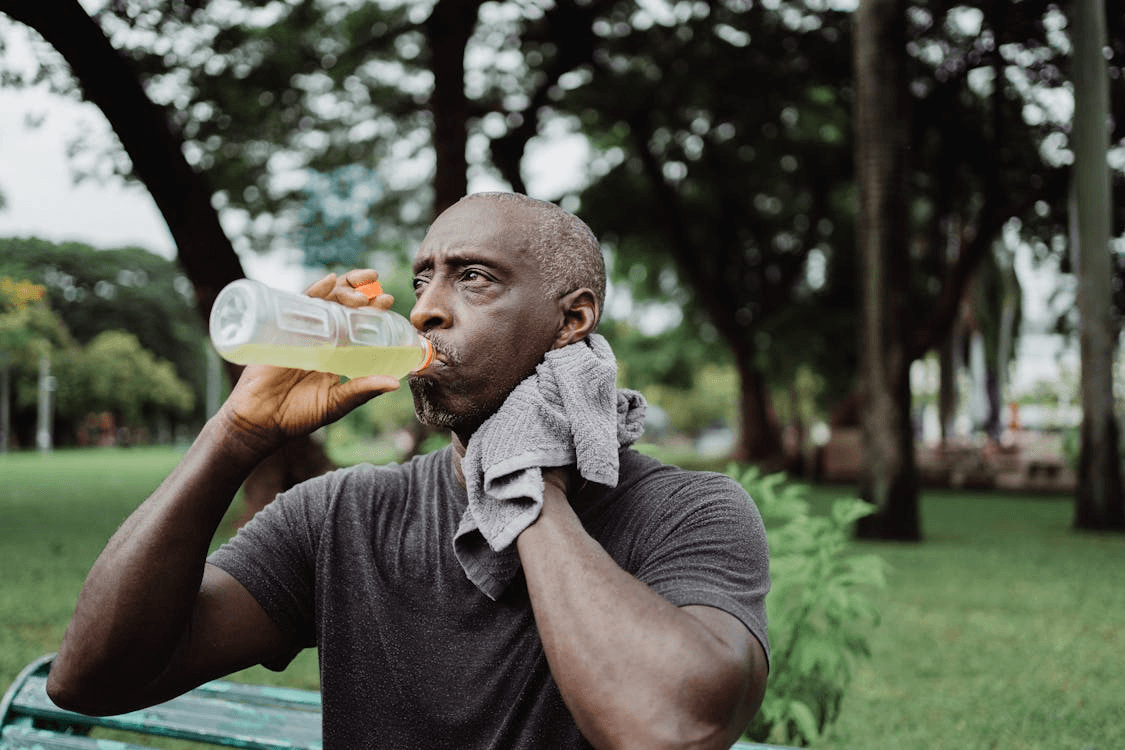You've got the best running shoes and the best running kit, you’ve set your goals and you’re ready to hit the road, but have you fuelled up properly? To perform your best, you need to prep for your run from the inside out. As well as providing the right nutrients, a runner’s diet can also affect sleep and mental well being. Even some ‘healthy’ foods can be hard to digest and make you feel sluggish, so it’s important to get the balance right.
Read on to find out everything you need to know about the best nutrition for runners
The basics of running nutrition
The key priorities in any running diet are to fuel, refuel, and repair. If you don’t provide your body with the correct nutrients, it can result in reduced energy levels, muscle fatigue or cramping, dehydration, plus
longer recovery times. Additionally, your overall well being could suffer if your body is nutrient-deficient, meaning that you could start to succumb to colds and other illnesses. Your focus and mental resilience might also be impaired, as mental as well as physical health relies on good nutrition.
But which nutrients are essential for runners?

The nutrients that runners need the most are the three macronutrients: carbohydrates, protein, and fats.
Carbohydrates
Although protein and dietary fat can provide energy, carbohydrate is the only macronutrient that can be metabolised quickly enough to provide energy during periods of high-intensity exercise. Carbohydrates are therefore the primary energy source for runners and also have an important role in the human body. As well as providing a source of energy, they affect blood glucose, insulin metabolism, and cholesterol metabolism. (1,2,3.)
They are converted into glucose which enters the bloodstream and can be used as energy. Excess glucose is stored in the liver and muscle tissue, where it can be easily accessed when further energy is needed. If there is insufficient glycogen stored in muscles this can affect your running performance, and may even increase your risk of injury.
But which type of carbohydrates should you eat on a runner’s diet?
Complex carbohydrates are best day to day, as the fibre they contain ensures that they are metabolised more slowly than simple sugars, so provide sustained energy without causing blood sugar peaks and troughs. Find out more about the benefits of fibre.
Beans and pulses are great complex carbs but can cause bloating in some people, so a runner’s meal plan should include more easily digestible sources such as oats, brown rice, sweet potatoes, quinoa, buckwheat, and fruits such as apples, berries, and bananas. Depending on how often and how hard you’re training, aim for around 5-8g of carbs per kg of body weight per day to maintain your glycogen stores, or up to 8–12 g/kg per day for very heavy exercise.(3)
You might want to utilise simple carbohydrates at certain times for a quick burst of energy, read more about this later on.

Protein
Protein is an essential macronutrient with multiple roles in the body. It’s found in food in the form of around 20 different amino acids, nine of which the body can’t produce itself so these must be sourced from the diet.
It is essential for muscle growth and tissue repair, so can help build muscle and prevent, or aid recovery from, injuries and strains (4). During exercise, muscle fibres are broken down, but eating sufficient protein can help. Protein is also required for the production of enzymes in the body which aid nutrient absorption (5) .Eating protein before and after a run can aid in muscle growth and repair.
Another advantage of consuming a high-protein diet if you’re a runner, is that protein also has a high thermic value. This means that it takes longer for the body to metabolise so this helps to keep you feeling full. Protein also stimulates satiety hormones which signal to the brain that you have eaten enough (6,7). You may feel super-hungry when training, so eating protein with every meal helps to stop you overeating or snacking on the wrong type of foods.
Find out more about the best protein foods for weight loss and maintenance, and how much protein you should be eating.
Healthy fats
Fat is often seen as a dirty word for dieters or fitness fanatics, but the reality is that this macronutrient is vital for good health, and it’s a key consideration in running nutrition.
Healthy fats are great to include as part of a runner's nutrition arsenal - they’re anti-inflammatory and can provide a sustained source of secondary energy, especially if running long distances.Getting enough fat in your diet is also important in order to absorb fat soluble vitamins A, D, and E.
Ideally 20 to 30 percent of your total daily calories should come from fat. An average diet should contain around 60g of fat, with two thirds of this coming from ‘healthy’ unsaturated fats. Another general guide is to allow around 1g of fat per kilogram of body weight. (8)
It’s a complex area of nutrition, however, as there are many different types of fats, and it can be tricky to get the balance right. It’s important therefore to ensure that you’re eating a wide variety of different fats and oils.
- Polyunsaturated fats - Omega 3 essential fats are found in oily fish, walnuts, flax seeds, chia seeds, hemp seeds, and Brussels sprouts! Omega 6 essential fats are found widely in our diets, in vegetable and seed oils such as sunflower and corn, margarine, nuts, and eggs,
- Monounsaturated fat - Can be found in olive oil, avocado oil, peanut butter, nuts and seeds
- Saturated fats - meat (lard), butter, coconut oil, and full-fat dairy products
- Trans fats - Trans-fatty acids, are forms of natural and artificial unsaturated fats. Natural trans fats are found in and are not considered to be harmful, but artificial trans fats such hydrogenated vegetable oils are associated with serious health risks.

Essential fats in-depth:
Omega 6 fats are found in many foods, and it’s typically easy to obtain enough in our diet. Omega 6 fats are essential for good health: they’re a great source of energy, play an important role in brain function, growth and development, skin and hair growth, and are important for bone health, metabolism, and hormone health. However, as they’re so widely available in the diet, and often hidden in processed foods, it can be easy to consume them to excess. There are different types of omega-6 fats, but in general they have a pro-inflammatory role in the body.
Although inflammation is important in treating infections and wounds, and the omega-6 fat, linoleic acid, and arachidonic acid (AA) formed from omega-6, are important in immune responses, too much can cause excess inflammation. Omega 3 fats on the other hand are anti-inflammatory, and it’s unlikely that you will consume too much of them in your diet. Historically, the ratio of omega-6/3 consumption was around 4:1 or less. However, in a typical modern Western diet, the average person consumes an omega-6/3 ratio of approximately 20:1 in favor of omega-6. We can try to balance this by aiming to increase the amount of omega 3 we eat. As they’re only available in a relatively small number of foods, many people choose to take an Omega 3 supplement.(9)
Other essential nutrients for runners
If you’re challenging your body hard, then it makes sense to give it the best fuel to aid performance. As well as providing the basic macronutrients, there are other nutrients which should be key considerations in your runner’s diet plan:
- Calcium and magnesium - calcium and magnesium are essential for bone health and muscle function, and magnesium is also involved in energy production, metabolism, and heart health. As they’re both lost in sweat and urine, it’s good to keep an eye on intake. These two minerals have a close relationship, and need to be kept in balance, as if calcium levels are too high, it can affect magnesium absorption. Good sources of calcium are dairy products, tofu, nuts, and green leafy vegetables. Good sources of magnesium are green leafy vegetables, such as spinach, pulses, nuts, seeds, and whole grains.(10)
- Zinc - Another vital mineral lost via sweat during intense exercise, zinc is important for muscle regeneration, immune function, wound healing, and reducing inflammation. Good sources include oysters and other seafood, meat and poultry, nuts and seeds.(11)
- Vitamin D - vitamin D is the ‘sunshine’ vitamin, made when our skin is exposed to sunlight. It is particularly beneficial for runners as it’s important for calcium regulation, bone health, and immune function. It’s also important for mental wellbeing. It’s not widely available in our diet, being found in a limited number of foods such as oily fish, liver and red meat, and egg yolks, so deficiency is becoming increasingly common. The advice from the NHS is to take a vitamin D supplement during the winter months.
- Antioxidants Fruits and vegetables: fruit and veg provide vitamins and minerals for immune support, efficient metabolism and overall well being. Eat brightly coloured fruits and vegetables like berries or beetroot - these are full of antioxidants which have been shown to improve performance and aerobic capacity.(12)
- Iron - iron is required to make haemoglobin, which carries oxygen around the bloodstream. Without enough iron, you can feel very fatigued and lacking in motivation. Female runners are at greater risk of iron deficiency due to menstruation. Good sources of iron include liver, red meat, beans including soy, nuts, and dried fruit.(13)
Ultimately, think of every meal as an opportunity to improve your energy and performance. Read on to find out the best and worst foods to eat when training or competing. If you know your diet is lacking, due to personal preferences or food intolerance, in some of the nutrient-rich foods you need to eat, then it’s worth considering supplements. Ideally get professional guidance from a qualified health professional.

The best foods to eat before a run
Your body needs regular refuelling, so ideally eat three nutritious meals a day when training, and a couple of healthy snacks. If you’re going to be running for more than 10 km, increase the amount of carbs you eat in the preceding week, to make sure your glycogen stores are topped up. You can only store so much glycogen - roughly enough to keep you going for around 32 km - but if you’re going to be running for more than 90 minutes, you’ll also need to consume fuel during the race to replenish glycogen, plus fluids to keep you hydrated. This is one time when you can go for the simple carbs rather than complex, as they need to be quickly metabolised.
Energy gels, honey sandwiches, and even jelly beans are popular mid-race top-ups with sports drinks to keep you hydrated and replace electrolytes lost in sweat. You can experiment with making your own natural gels using ingredients like water, dried fruit, bananas, molasses, maple syrup or honey, and a little peanut butter, and electrolyte drinks using water, green tea, or coconut water, with salt, calcium/magnesium powder, honey or maple syrups, and some fruit/citrus juice.
Foods to avoid before a run:
As well as trying to include the right foods in your runner’s meal plan, it’s worth giving some thought to foods you might want to avoid, especially before a big race. Everybody’s digestion is different, so you need to listen to your body and find out which foods you tolerate best. If you do tend to suffer from digestive issues regularly, it can be worth working with a nutrition professional to work out the best diet for your needs. Here are some general recommendations, however, of some common food types which may cause digestive disturbances:
- Processed foods -a runner’s diet should be very efficient - every meal should provide nutrients. Processed foods are typically full of empty calories, added sugar, and fat,with low amounts of the nutrients your body needs.
- New foods - it’s not the best time to introduce lots of new foods when you’re training, especially not just before a race, and particularly if you tend to have a sensitive digestive system. An upset stomach could
- affect your performance, so stick to tried and tested favourites.
- Spicy/acidic foods - while they can boost your metabolism, spicy foods may also cause indigestion and heartburn, so you’re best avoiding these if you find they cause you problems. Other culprits are chocolate, coffee, tomatoes, and mint. These foods can cause reflux, as they relax the lower oesophageal sphincter and allow acid to travel back up the gullet, a discomfort you don’t need when running.
- High fibre foods - beans and pulses or cruciferous vegetables are super healthy, but some people find them difficult to digest. If you find they cause bloating, avoid before training or a big race.
Should you run on an empty stomach?
This can be down to personal preference and your own metabolism. Before a training session, some people do best when they’ve had a meal about two hours beforehand, while others run best on an empty stomach. If you like an early morning run before breakfast, you still need to provide your body with energy, so ensure that you eat well the night before. For longer runs, however, it’s always best to do this when properly fuelled up otherwise you may find that you don’t have enough ‘fuel’ to keep you going.
You also need to make sure you have stocked up your glycogen stores, so ideally have a balanced meal 2-3 hours before, then a carb-heavy snack about an hour before. It’s also important to eat after running, regardless of whether you feel hungry or not, to replenish your glycogen stores, and to provide protein for muscle building, repair, and recovery.

Hydration for runners
We’ve learned the importance of nutrition for runners; however, don’t overlook your fluids! Adequate hydration is even more important than your diet. Around 70% of our body is made of water, and we use and lose water from the body constantly, in urine, sweat, and bodily fluids and functions. Many people don’t consume the recommended six to eight glasses of fluids daily, and it’s also important to note that this recommendation is the minimum: when you do any form of strenuous exercise, your hydration requirements increase. Exercise generates heat, and your body uses sweat to cool you down, which uses up your body’s fluids.
Tips to keep well hydrated when running:
- Alcohol - watch your alcohol consumption, even long, refreshing alcoholic drinks. Alcohol is a diuretic so can cause you to become dehydrated. It is toxic to the body and can deplete B vitamins, which help you metabolise carbs efficiently.
- Caffeine -many runners use caffeine to boost energy and performance, but caffeine is a diuretic so can cause you to urinate more often. Aside from being an annoyance if you need the loo during a run, this can also make you more prone to dehydration. Although they technically count towards your ‘eight a day’ drinks allowance, ideally don’t major on caffeinated drinks and don’t include them as part of your daily fluids intake tally.
- Keep an eye on your urine - one of the best indicators of your hydration levels is the colour of your urine. Dark yellow urine means that you need to hydrate, fast, whereas clear urine means that you’re on track with your fluid intake. Check out our handy urine chart and get more hydration tips in Are You Drinking Enough Water?
- Electrolytes - Bodily fluids like sweat and urine also contain minerals known as electrolytes, in particular sodium, potassium, and chloride. Electrolytes help to control fluid balance and blood pressure in the body, and help muscles work properly. You can replenish lost electrolytes by drinking sports drinks or powders containing electrolytes, but don’t forget that tap and mineral waters also contain electrolytes, such as potassium, sodium, and calcium. 14 Coconut water, citrus fruits, and ginger shots are also great options to boost your electrolyte balance. Many runners add a little table salt to their water as it contains sodium and chloride.
High protein meal prep for runners
We’ve learned that nutrition for runners is very important for energy, stamina, performance, and recovery, as well as mental well being and motivation.
- Key components of a runner’s diet are the macronutrients, carbohydrates, protein, and fats.
- Other key nutrients are vitamins, minerals, and antioxidants.
- Optimum hydration is even more important than diet.
A Prep Kitchen subscription offers an ideal runner’s meal plan, providing high-protein, nutritious meals with at least two portions of antioxidant-rich vegetables. The meals are designed and macro-balanced by Michelin-trained chefs, and there’s no prep, no waste, and no washing up! Running can be a time-consuming sport, but a Prep Kitchen subscription allows you to prep less and do more of what you love. All you have to do is choose which delicious meals you fancy, and then enjoy! With low-carb or balanced fat loss options, you can choose the best plan for your needs. Order yours now.
If you enjoyed this article, then read these other related articles on our blog:
How to lose, gain, or maintain with Prep Kitchen
Overtraining, are you exercising too much?
Chris Tang’s 5 Top Tips to Smash Your Goals
References
Holesh JE, Aslam S, Martin A. Physiology, Carbohydrates. [Updated 2023 May 12]. In: StatPearls [Internet]. Treasure Island (FL): StatPearls Publishing; 2024 Jan-. Available from: https://www.ncbi.nlm.nih.gov/books/NBK459280/
Murray B, Rosenbloom C. Fundamentals of glycogen metabolism for coaches and athletes. Nutr Rev. 2018 Apr 1;76(4):243-259. doi: 10.1093/nutrit/nuy001. PMID: 29444266; PMCID: PMC6019055.
Kanter M. High-Quality Carbohydrates and Physical Performance: Expert Panel Report. Nutr Today. 2018 Jan;53(1):35-39. doi: 10.1097/NT.0000000000000238. Epub 2017 Oct 21. PMID: 29449746; PMCID: PMC5794245.
Pasiakos SM, McLellan TM, Lieberman HR. The effects of protein supplements on muscle mass, strength, and aerobic and anaerobic power in healthy adults: a systematic review. Sports Med. 2015 Jan;45(1):111-31. doi: 10.1007/s40279-014-0242-2. PMID: 25169440.
Cooper GM. The Cell: A Molecular Approach. 2nd edition. Sunderland (MA): Sinauer Associates; 2000. The Central Role of Enzymes as Biological Catalysts. Available from: https://www.ncbi.nlm.nih.gov/books/NBK9921/
Halton TL, Hu FB. The effects of high protein diets on thermogenesis, satiety and weight loss: a critical review. J Am Coll Nutr. 2004 Oct;23(5):373-85. doi: 10.1080/07315724.2004.10719381. PMID: 15466943.`
Moon J, Koh G. Clinical Evidence and Mechanisms of High-Protein Diet-Induced Weight Loss.(2020) J Obes Metab Syndr. Sep 30;29(3):166-173. doi: 10.7570/jomes20028. PMID: 32699189; PMCID: PMC7539343.
Liu AG, Ford NA, Hu FB, Zelman KM, Mozaffarian D, Kris-Etherton PM. A healthy approach to dietary fats: understanding the science and taking action to reduce consumer confusion. Nutr J. 2017 Aug 30;16(1):53. doi: 10.1186/s12937-017-0271-4. PMID: 28854932; PMCID: PMC5577766.
DiNicolantonio JJ, O'Keefe J. The Importance of Maintaining a Low Omega-6/Omega-3 Ratio for Reducing the Risk of Autoimmune Diseases, Asthma, and Allergies. Mo Med. 2021 Sep-Oct;118(5):453-459. PMID: 34658440; PMCID: PMC8504498.
Dai Q, Shrubsole MJ, Ness RM, Schlundt D, Cai Q, Smalley WE, Li M, Shyr Y, Zheng W. The relation of magnesium and calcium intakes and a genetic polymorphism in the magnesium transporter to colorectal neoplasia risk. Am J Clin Nutr. 2007 Sep;86(3):743-51. doi: 10.1093/ajcn/86.3.743. PMID: 17823441; PMCID: PMC2082111.
Hernández-Camacho JD, Vicente-García C, Parsons DS, Navas-Enamorado I. Zinc at the crossroads of exercise and proteostasis. Redox Biol. 2020 Aug;35:101529. doi: 10.1016/j.redox.2020.101529. Epub 2020 Apr 1. PMID: 32273258; PMCID: PMC7284914.
Vitamin D (2020) NHS choices. Available at: https://www.nhs.uk/conditions/vitamins-and-mineral... (Accessed: 01 August 2024).
Abbaspour N, Hurrell R, Kelishadi R. Review on iron and its importance for human health. J Res Med Sci. 2014 Feb;19(2):164-74. PMID: 24778671; PMCID: PMC3999603.
Shrimanker I, Bhattarai S. Electrolytes. [Updated 2023 Jul 24]. In: StatPearls [Internet]. Treasure Island (FL): StatPearls Publishing; 2024 Jan-. Available from: https://www.ncbi.nlm.nih.gov/books/NBK541123/




